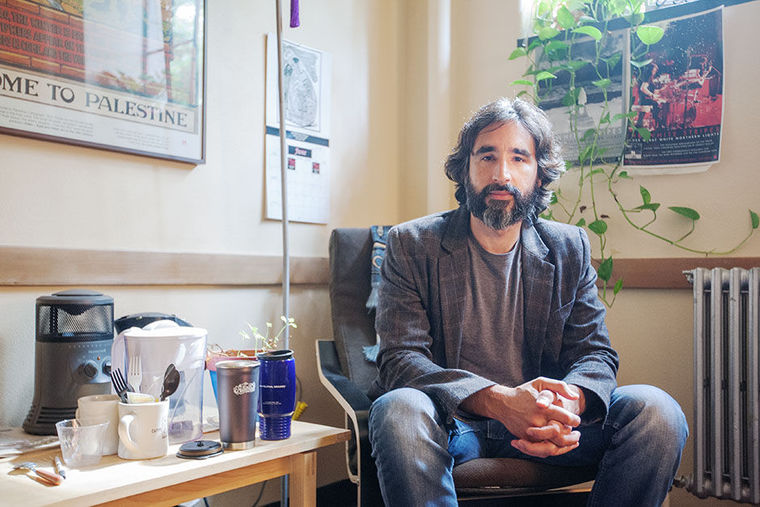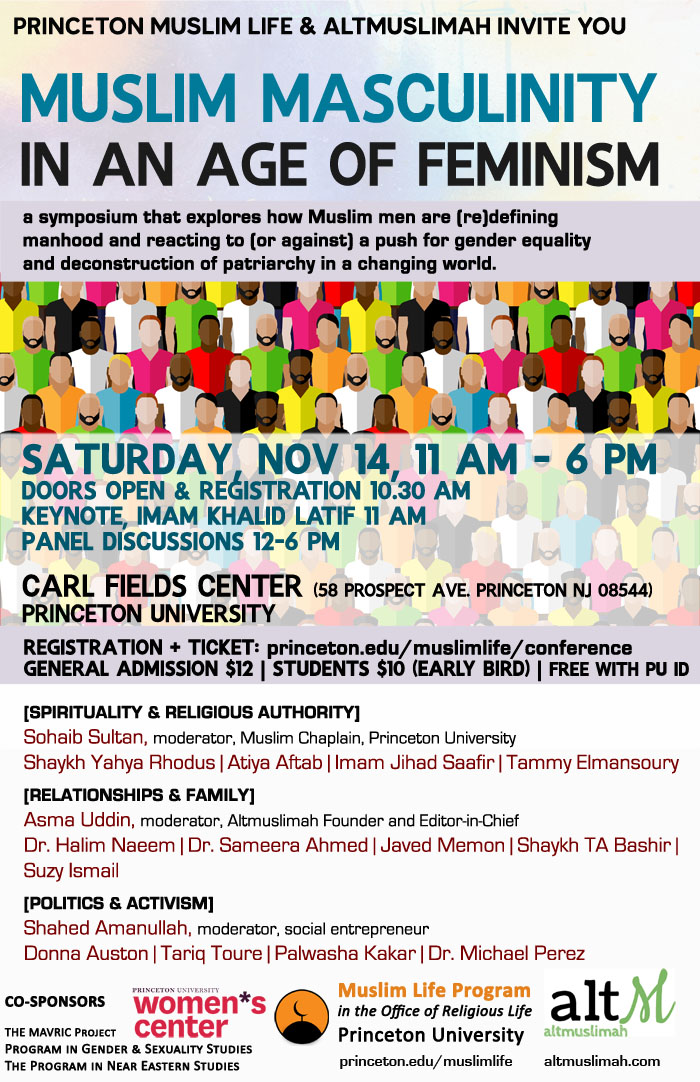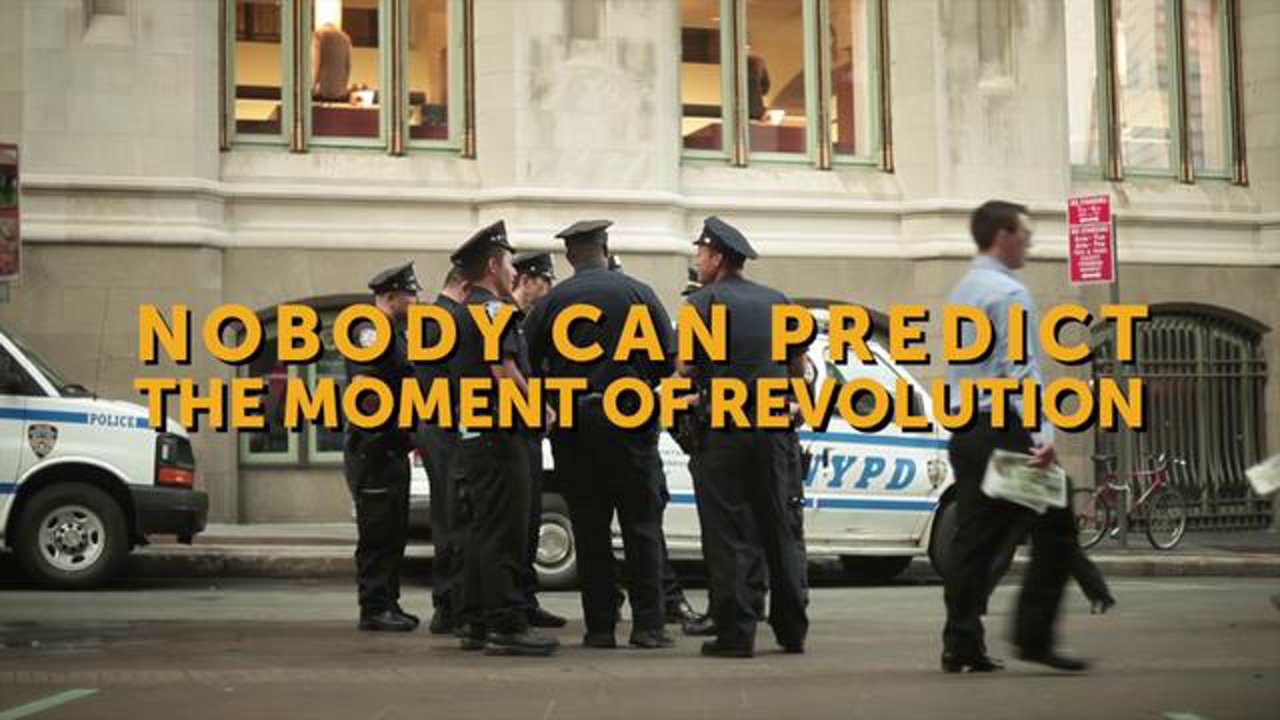When I accepted Islam almost two decades ago, I accepted more than five pillars. I also embraced the possibility of a manhood informed by Islamic ideals. The project of becoming a Muslim was therefore inseparable from the project of becoming a particular kind of man. This was no easy task: much of what I learned about being a Muslim man contradicted the man I was. Friendship, marriage, and family were all redefined by the model of a pure Islamic manhood.
Initially, my masculine revolution wasn’t that hard. I was inspired by the new limits placed on what felt like an unlimited experience of masculinity. Dating was prohibited. The pursuit of sexual pleasure had to be subordinated to the context of marriage. Parenthood was the fulfillment of a divine imperative and fatherhood, in particular, was a station of high Islamic honor. Being a man was empowering and seemed to provide the bases for a simple structure for organizing the social world.
Inevitably, my inspiration dwindled. Despite the power of my new masculine ideals, it was clear that the model of Muslim manhood I was learning was fiercely patriarchal. Being a man was about being the head of the family, the breadwinner, a leader. Why? Because I was a man: a naturally rational and assertive creature whose position was assigned by God as the caretaker of women and the community. I also learned that manhood was about control, authority, and power. Women’s bodies were a temptation to men that required public closure. “Our” natures were distinct from that of women. We were equals in “spiritual” terms but distinct in every other. Men belonged in the public, women in the home.
My disappointment with these masculine ideals concerned their implications for a social world that had all of the ingredients of inequality and injustice. At the time, I was a student of philosophy and anthropology. My educational aspirations were no doubt informed by the Islamic emphasis placed on learning. Indeed, the Muslims at my mosque put the acquisition of knowledge above all things. A Muslim was an educated individual. But that very imperative to learn brought me to the limits of what I had learned so far. The social sciences and feminist theory in particular demonstrated, empirically, how gender inequalities reflected idealizations of masculine and feminine natures not unlike those extolled in my community. It also offered a powerful framework for looking at how the various manifestations of difference translated into manifestations of oppression. And this wasn’t simply a matter for “the West:” feminists across the world, Muslims included, took on the task of identifying and challenging their own localized forms of gender inequality.
Faced with seemingly irreconcilable visions of gender, one divine, the other social, I did what any Muslim would do gifted with the capacity to think critically: I studied. And as I studied, I discovered the value of feminist work for deepening my own understanding of what it means to be a Muslim heterosexual man.
Contrary to the dismissive (and often ignorant) attitude of Muslims towards feminism as a “Western” movement against Islam, I learned that feminism and gender studies had a lot to offer. Invested in a more equitable experience for all members of society, I found feminists’ ideals compatible with those of Islam. The home, for example, didn’t have to reflect a gendered hierarchy of male authority and female compliance. Instead, feminists suggested the possibility of a mutually dignifying context in which cooperation, not nature, could define a man’s role. Being a man, in other words, required a responsibility not towards an illusory masculine essence; rather, it required responsibility towards the desires, capacities, and rights of other men and women in my social world. Manhood was not mine alone. It was the shared project of an entire community.
Unfortunately, many Muslims see feminism and gender studies in the “West” as a bad thing. This, of course, is not entirely Muslims fault. Many liberal feminists have aggressively and ignorantly condemned Islamic beliefs and practices as inherently oppressive. Privileging their own visions of gender, Muslim women and men have been degraded as backward or uncivilized people constrained by an irrational ideology. But this trend barely captures the universe of feminist theory or politics. Feminists do not subscribe to a single set of ideas and writers like bell hooks have pushed forth internal critiques of feminism that bring race and class into the picture. These perspectives have not dismissed feminism. Rather, they’ve deepened it.
Feminists, like Muslims, are not a monolith. To say otherwise is not only incorrect but a deception. Put simply, feminism matters and it matters as much to Muslims as to anyone else.
This is not, as some Muslims would have us believe, an “external” epistemology grounded in “Western” ideals. Such simplistic and absurd reductionism is nothing more than a sign of ignorance and fear. Muslims who dismiss feminism either don’t know what their talking about or understand the threat it presents to their vision of an authentic patriarchal world. We, as Muslims, would do well to see that feminism has something to offer. And with the spirit of Islam in our hearts, we should be open to seeing that Islam and feminism are not incompatible ideologies but rather complementary visions of a more just social world.
Photo Credit.
Michael Perez will be presenting at the Muslim Masculinity in An Age of Feminism Conference. Check out our updated lineup!







“Being a man, in other words, required a responsibility not towards an illusory masculine essence; rather, it required responsibility towards the desires, capacities, and rights of other men and women in my social world. Manhood was not mine alone. It was the shared project of an entire community.” Michael Perez’s commentary is a wonderful expression of what I would call an “educated modern-day” man’s critic and respects gender differences without imposing “strict” culturalized meanings…progress is being made on that front. However, I do hope that Mr. Perez’s and those who agree with him do understand that the “entire community” goes far beyond the cultural and gender binary in meaning. Masculine essence, not unlike maleness, is shared by all kinds of men, and all kinds of men have the capacity of “getting” the meaning of expanded views on feminism…not just the “heterosexuality” part of the equation. Dr. ML King’s comment: “The arc of the moral universe is long, but bends towards justice”…it should be clear it does not stop at gender but expands far beyond sexuality and orientation, as well as race, ethnicity, etc., etc., etc. We’re getting there, but we still have a great distance to cover because you/we cannot rest on your/our laurels.
We would like to ask your permission to re post this article in our website. Thanks in advance 🙂
Thank you for your interest! Our reprint policy is that you can print the first 100 words and link back to the article on altmuslimah.com for the rest.
I think Michael would have a more respectable position if he did not strike an attitude of, “You Muslims don’t understand feminism, and now I’m gonna teach 1.5B of you how to be a man. I’m a convert, so I thought about Islam, not just inherited it like you.”
As Michael puts Muslims on one side of the equation and put the West and feminism on the other side, I have this question: Does the West unanimously hug and kiss feminism? Is feminism an integral part of the West? The reality is that the West has been discussing “post-feminism” for thirty years, and just like they sell obsolete military technology to some of the Muslim countries as new, Michael is on a similar mission in introducing feminism to Muslims as the latest new thing (I don’t question Michael’s noble intentions, though).
This article also features some Muslim strawmen who are ignorant or incapable of understanding feminism. IMHO, if there is anyone who misunderstands feminism, it is usually the progressive and at the same time very naive Muslims who miss that feminism is an “ideology” that perpetuates itself via the war against patriarchy. Resorting to feminism for women rights is not different than asking for communism for workers’ rights. (We have indeed witnessed “communist” or “socialist” readings of Islam in the last century.) Islamic tradition does not see men competitors and oppressors against women; men and women are complete each other by the different qualities and tasks given/assigned to each gender. And practically speaking, Muslims by and large will not allow any social engineering.
Not only Michael, but we all are ideologically brainwashed, and modern times don’t show us examples of real man anymore. Even worse, as the men has been buried six feet deep, where are the real women? Real Muslim women drew sword with the men when it was necessary, but they never became man-like.
I’ve read the article twice to find where the meat was, particularly to find out what Michael was proposing or at least diagnosing. Michale says, “We, as Muslims, would do well to see that feminism has something to offer.” Like what? Like dudes doing more chores? If so, I don’t think any genuine feminist would acknowledge that as part of the mission of feminism. After all, if you want to do more chores at home, go ahead, you don’t need to reform Islam or Muslims. Helping your wife more will make you earn more rewards from Allah.
Ruwayda, salaam. Your wrote: “Islamic tradition does not see men competitors and oppressors against women; men and women are [to] complete each other by the different qualities and tasks given/assigned to each gender. And practically speaking, Muslims by and large will not allow any social engineering.” Now it seems you are thinking only inside the “perfect community” fallacy, Aristotelian natural law, and other mythologies intertwined in the history of the Arab peoples of the Hijaz. Are you ignoring the fact that Medina in and of itself was the result of new “social engineering” and the center of activity moving from the times of jahaliyya to a growing and expanding milieu of Quranic ethnics appropriate for an expanding empire. Was that not “social engineering” to change the position of the oppressed, which of course included women, the poor and dispossessed and forced labor and sexual slavery? All of these areas had gradual but definitely forward movement towards change from the onset. Of course, it took far longer for slavery to end and we’re still dealing with the disempowerment of women, racial and sexual minorities, isn’t that true? So I ask if this is a “refined” rereading of historical facts? What happens far too frequently is a person will form ideals latched to a falsely imagined of “pristine” Islam that never existed. What is often taunted as “perfection” of the Islamic state at the time of 7th century Prophet Mohammad…a Salafist/Wahabist fallacy…ignores the great diversity of people, their history of customs and cultures, and that Prophet Mohammad did not seek to establish an immutable system. The problem continues to be Arab hubris which rips history from reality to set in place a false divinity. Let’s be honest, human rights are human rights and to take away anything from the larger grouping does harm to one part over another, and I think you would agree harm to one person/group is like destruction of all of human kind.
Uh, yeah. Like dudes doing more chores. I can’t believe a woman wrote this.
You obviously don’t know anything about feminism if you don’t think equal work both inside and outside the home is part of the mission of feminism.
Domesticity being held to be a feminine virtue, women doing domestic work unpaid, this type of work being considered as coming ‘naturally’ to women, this work not being valued because it’s considered part of the feminine, this work being made invisible because it takes place in the private domain, this work being outsourced to women from less privileged positions (think migrant women domestic workers) who are also undervalued and underpaid — these are all most definitely issues of feminism.
Running a house and raising children is hard work, and women still do most of it in most homes. Considering that many women work outside the home as well, that means women end up doing the equivalent of two full-time jobs (known in feminist theory as “the second shift”).
If you don’t think the issue of “chores” remains an important factor in many families’ lives and contributes to unequal relationships and if you don’t think this is an issue in Muslim families, you’re delusional, and obviously not a woman.
Considering that Muslim women often work outside the home as well, it is a HUGE problem in Muslim homes too. And no, the answer is not Muslim women shouldn’t work outside the home because their primary responsibility should be the house and kids. And no, the answer is not just you “helping” your wife more quietly in your own home (btw, “helping” implies that primarily, it’s her job in the first place just like a father “babysitting” his own kids implies that parenting is the mom’s job).
Yes, of course, you should approach approach the responsibilities of child care and housework as real partners. Yes, of course you should commit to doing your fair share of daily chores, (and then some! Because research has shown that even when men think they’re doing their fair share, they’re doing far, far less).
But the real root of the problem is cultural and misguided gender roles that we have all internalized, and there needs to be more awareness about the issue, more discussions about the problem, more women and men speaking out, more role models on how to construct an equitable marriage, more boys being taught from a young age that there’s no such thing as “women’s work”. Yes, we can all talk a big game about how the Prophet SAW used to mend his own shoes and do work inside the home, and we can all talk about how Islam is so progressive because traditional jurists sometimes held that women don’t have to perform domestic labour like cooking and cleaning, and that they should be paid for their housework and if they choose to do domestic work anyway and forego payment, that’s out of the goodness of their hearts and they’ll be rewarded. But that’s all we do – we just talk. We say this stuff sometimes, and the end result is women still doing the majority of the housework in most homes because now they’re doing it out of the goodness in their hearts. Oh, and also ’cause their husbands won’t.
“… equal work both inside and outside the home is part of the mission of feminism.”
Let me change the angle of the light for you so that you can better realize what your statement actually looks like: “Working at home is not enough for women, they should work outside the home as much as men do.”
And indeed ripping women away from wifehood and motherhood and making them part of the workforce was the main mission of feminism.
Of course this is not to say that women should not work in any condition. Circumstances may force a woman to work more than one job to support her family. (But we here are “concerned” about the mean and standard deviation of a population, not individuals.) As a matter of fact, no one points out to the large segment of women who “have to” work due to need but in reality want to be housewives. (If anyone wants to initiate such a movement, I suggest we name it reverse-feminism)
And what does “equal” work outside the home mean? Wife making money as much as the husband does, or working for the same number of hours, or not necessarily the same number of hours but spending the same amount of effort (can be measured in kcal)?
And not to mention the physical and biochemical difference between men and women…
Thank you Ruwayda for your comments. I’ll respond to a few points you raised.
R: “The reality is that the West has been discussing “post-feminism” for thirty years…”
It’s true that feminism is not new. We’ve seen several “waves” of feminism and the theoretical/political literature is always expanding. My point is that many Muslims (T. J. Winter, for example) treat feminism as a single thing and proceed to dismiss it with very faulty considerations. I’m suggesting that we (Muslims) engage this ever-expanding work called feminism without prejudice. It really doesn’t matter if the “West” has embraced feminism; the question is what does feminism(s) offer Muslims and how can be benefit from its insights? I think there is a lot to gain.
R: “Islamic tradition does not see men competitors and oppressors against women; men and women are complete each other by the different qualities and tasks given/assigned to each gender. And practically speaking, Muslims by and large will not allow any social engineering.”
Islamic traditions are many and I can’t seem to find a history without “men as competitors” and “oppressors against women.” The recent conversations about female slavery in Muslim legal traditions suggests that women were legally transformed into possessions that not only enabled men to use their bodies for sex but denied female slaves the very possibility of consent. This is exactly the kind of work feminism can assist us with: male written traditions tend to reflect male perspectives and often reinforce male privilege (consciously and unconsciously). I am also surprised that you would think Muslims don’t like social engineering. I’m not sure what your particular idea of social engineering is but, as Daayiee Abdullah pointed out, the entire project of the Prophet (PBUH) was one of social engineering.
R: “Michael says, “We, as Muslims, would do well to see that feminism has something to offer.” Like what? Like dudes doing more chores? If so, I don’t think any genuine feminist would acknowledge that as part of the mission of feminism. After all, if you want to do more chores at home, go ahead, you don’t need to reform Islam or Muslims. Helping your wife more will make you earn more rewards from Allah.
Feminism has a lot to offer. On the analytical/theoretical side, I would start with the basic insight that knowledge is always situated. That means we should rethink the production of knowledge in our traditions with attention to the ways power worked, specifically power via gender, class, and ethnic ideologies. The production of knowledge is not neutral; it is, rather, an activity riddled with power and often with significant investments in promoting status quo thinking.
To be honest, I think men’s contributions to chores, banal as it may seem, remains an important factor in many families’ lives. That’s certainly not as interesting as addressing how Islamic legal traditions construct the status of women as witnesses (not as valuable as that of men), for example, but it is a practically important part of what makes gender so frustrating. Again, T. J. Winter, who is a great Islamic scholar, put forth an argument (using patchwork analysis of evolutionary anthropology) that women are “naturally” better suited to repetitive tasks. That is a very problematic statement that would make a lot of women’s lives a bit more unhappy (and evolutionary anthropologists as well). It normalizes ideas about “women” and “men” and reinforces a family situation that some women (and men) would reject. Again, feminism is helpful for understanding how gender ideologies work to limit the realization of Muslim selves. I applaud the innumerable Muslims who have already engaged in this work but I think we need to focus MORE on Muslim men (in relation to their communities, families, etc.)
I think one of the biggest put-offs of this article is not only the need to refer to feminist ideology, but the references being so vague and ambiguous which is simply asking for controversy.
Covering a vast spectrum of dogma, doctrine and propaganda rendering the term little more than meaningless, any ideational system of belief can be thought provoking and benefits can be gleaned – that is little more than stating the obvious.
I don’t see any substance in this article as to what exactly it is suggesting nor is it clear what the author’s conceptualisation of the social dimension of life as advocated by revelation. Furthermore the simplistic refutation of T J Winters is not only poor but condescending. It would be sensible to address his concerns rather than a caricature of them.
A little disappointed tbh.
Wamutasima: I appreciate your response to the article. As the author, I must say that I wasn’t trying to present feminism’s various analytical approaches and/or political movements. It was a simple statement about my appreciation for feminism and its value to Muslims.
About T. J. Winter: it was a reference to an article I read that is available on online. It was not condescending; it was a sincere assessment of what I found to be a poorly constructed argument that dismisses feminism without really considering the debates among feminists (or women’s liberation) and uses select evolutionary biology to reaffirm the “natural” differences between women and men. Winter draws on the work of Marvin Zuckerman, for example, to suggest that neurotransmitters in the brain affect what we call “gender” behaviors. One of the points Zuckerman makes is about boredom: “the male brain is more susceptible to boredom when carrying out routine and repetitive tasks.” Winter takes this to say (and I quote) “The fourth (the quest for novelty, and the dislike of repetitive tasks) privileges women over men in the duties of the home. Insofar as modern office jobs are repetitive and tedious, women are clearly also gifted with more stamina in the workplace as well. Whether the biologists can demonstrate that men should, or are likely to, occupy fifty percent of jobs requiring attention to repetitive tasks, seems unlikely.”
Now, what I would ask you is what substantive issue do you have with feminism? First of all, in what sense do you think of feminism as an ideology? That’s clearly a limited approach to the term given that feminism draws on various intellectual currents itself and is constituted by numerous analytical and political projects. Feminism is clearly not a single “ideology.” In fact, some feminists are informed by Islam and work within the tradition with a feminist lens. Second, what’s wrong with controversy? Is not Winter’s argument inviting controversy? Isn’t women’s legal rights within Islamic traditions controversial? Isn’t the fact that so little Islamic literature exists on men and manhood controversial? This is an empty statement that itself begs substance. Finally, if it’s obvious that feminism is important to Muslims, then I’m puzzled by arguments by scholars (who I respect) like Winters. He seems to believe feminism failed and women’s liberation is refuted by the natural differences between men and women. Feminism’s use is not obvious to him? I’m sure he’s not alone.
I use the term ideology to refer to a constellation of normative beliefs informed by a world view – feminism in all its shapes and forms fits this definition.
My problem with feminism is the confusion it introduces to any discussion involving Islam. Those who attempt to somehow fuse it with Islam are courting controversy. If what they refer t is within the Islamic tradition, then they should argue as such. If it is seeking values elsewhere, then there is a problem as it implies Islam is lacking such values and they have somehow identified a mechanism outside of Islamic jurisprudence to identify values – I would be most interested how they have managed to do that as without the divine, values crumble into relativism, where anything and everything is pretty much justifiable.
As for T J Winters, your elaboration makes sense and I would concur – it would have been useful to have touched on some of those points in your article.